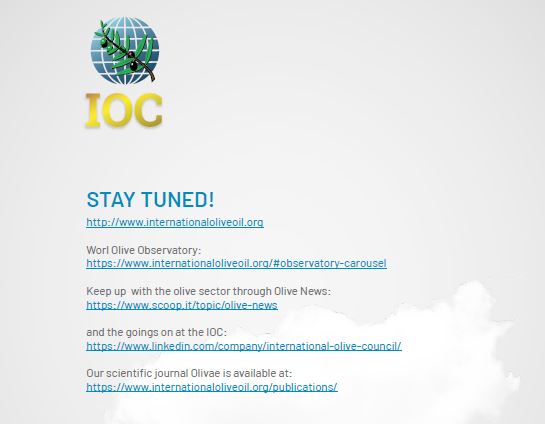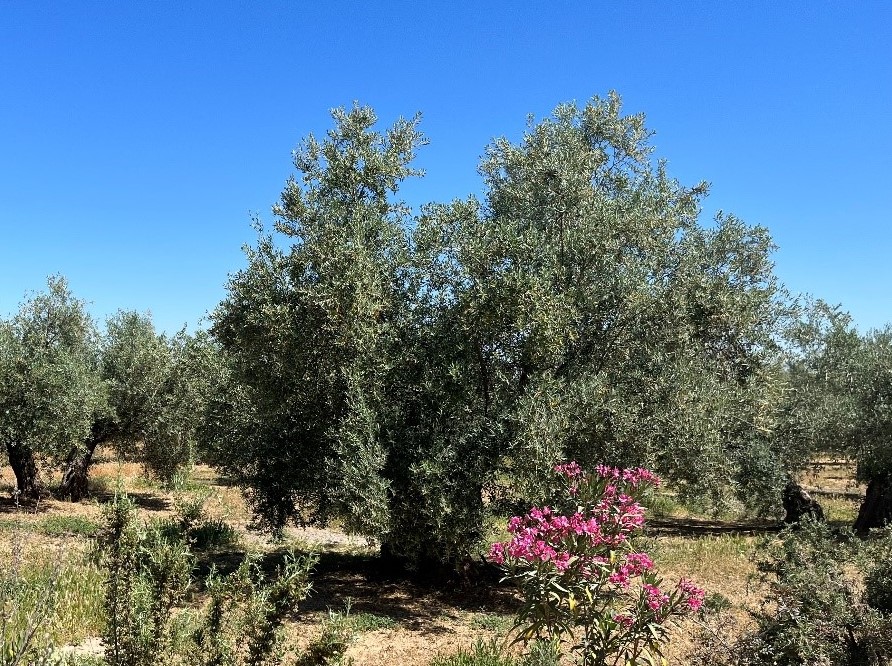The IOC attends CIAO2022 on olive-growing territories in the face of socio-economic and environmental change. From 26 to 28 May 2022, the Andalusian Academy of Regional Science (AACR) held the International Congress on the Olive Grove and Olive Oil (CIAO2022) in Jaén. This year, the event focused on ‘Olive-growing territories in the face of socio-economic and environmental changes’.
CIAO2022 aims to become a scientific forum for discussion on the current situation of the olive grove and olive oil and to facilitate analysis and ideas that can crystallise into possible technological, commercial, institutional, and political solutions.
The opening ceremony was attended by José Vallés Ferrer, President of the Andalusian Academy of Regional Science; Fernando Miranda Sotillos, Secretary General of Agriculture and Food of the Spanish Ministry of Agriculture; Vicente Pérez García de Prado, Secretary General of Agriculture, Livestock and Food of the Regional Government of Andalusia; Francisco Reyes Martínez, President of the Provincial Council of Jaén; Juán Gómez Ortega, Rector of the University of Jaén (UJA); África Colomo Jiménez, Second Deputy Mayor of Jaén; and Lhassane Sikaoui, Head of the Olive Growing, Olive Oil Technology and Environment Unit of the IOC on behalf of the Executive Director, Abdellatif Ghedira.
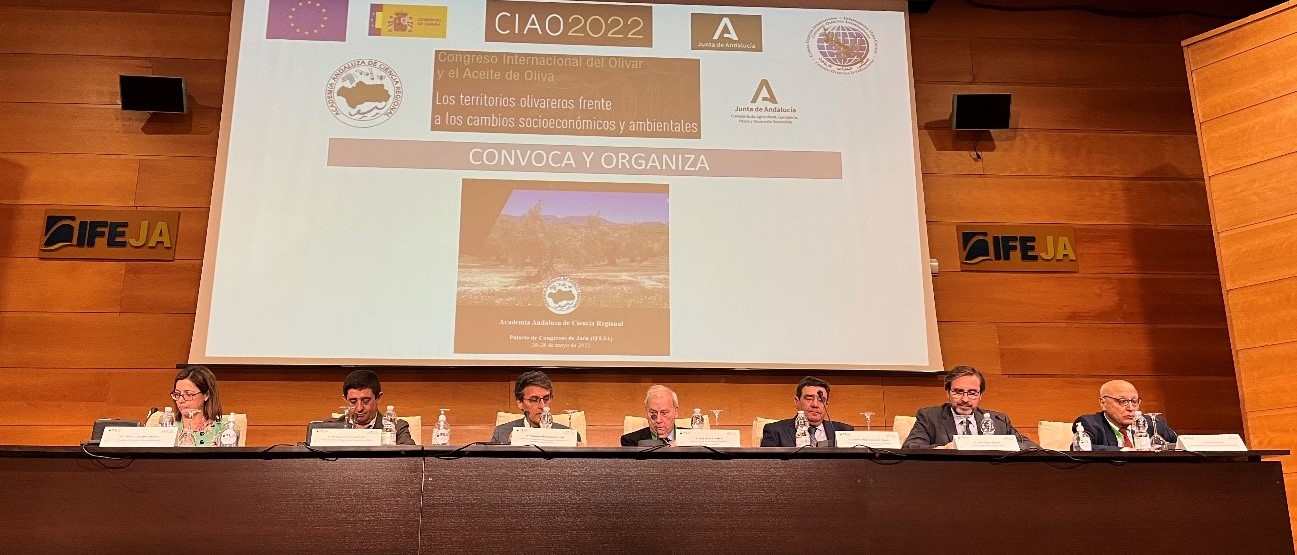 From left to right: África Colomo Jiménez, Francisco Reyes Martínez, Fernando Miranda Sotillos, José Vallés Ferrer, Vicente Pérez García de Prado, Juán Gómez Ortega and Lhassane Sikaoui.
From left to right: África Colomo Jiménez, Francisco Reyes Martínez, Fernando Miranda Sotillos, José Vallés Ferrer, Vicente Pérez García de Prado, Juán Gómez Ortega and Lhassane Sikaoui.
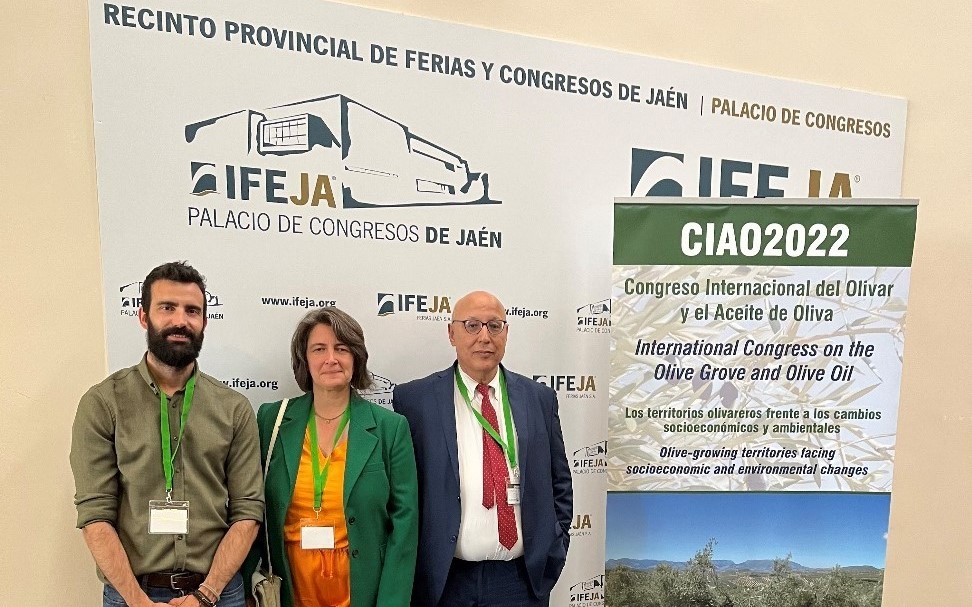 The opening speech was given by Lhassane Sikaoui, who presented the ‘situation, problems and prospects of the olive grove and olive oil in the world’. Besides the Head of Unit, the IOC was also represented by Head of the Technical Cooperation and Training Department Catarina Bairrao Balula, and Head of the Olive Oil Technology and Environment Department Pablo Morello Parra.
The opening speech was given by Lhassane Sikaoui, who presented the ‘situation, problems and prospects of the olive grove and olive oil in the world’. Besides the Head of Unit, the IOC was also represented by Head of the Technical Cooperation and Training Department Catarina Bairrao Balula, and Head of the Olive Oil Technology and Environment Department Pablo Morello Parra.
The first session was given by Luis Rallo, Emeritus Professor of the University of Córdoba (UCO) and the coordinator of the IOC network of germplasm banks, on ‘the olive grove at a time of change (1970-2020): the role of research and technology transfer’.
The second session was on ‘the challenges for the future of the olive grove: the role of public policies’, given by José Antonio Gómez-Limón from the UCO. The third was given by Manuel Parras Rosa (UJA) on ‘the olive oil market in Spain: demand, behaviour and tendencies’. María Dolores del Toro, ceiA3 manager, introduced ‘the ceiA3 campus of agri-food excellence and presentation of successful cases of ecosystem dynamization: the unique AgroMIS and GO Global Sensolive Oil projects’.
The CIAO2022 sessions were organised around four main themes:
– Olive growing systems: technical and economic aspects
– Olive oil: production, types, and characteristics
– Olive groves, environment, and territory: olive groves in rural development
– Markets, consumption, and demand: marketing strategies
Guests further discussed these themes in sessions held alongside the Congress, where they covered diverse matters including olive breeding and varieties, pests and diseases, water use, organic cultivation and biodiversity, cultivation systems and olive grove agronomy, olive oil extraction, challenges and opportunities for development of circular bioeconomy, international olive oils trade, olive oils consumption and demand, the history of the olive growing and of the olive oil use, the role of the olive grove in the endogenous and sustainable development of territories.
The lecture on Production of olive oils with rigorous control on compounds that present toxicity given by IOC PhD scholar, Akram Charfi, was a highlight. He presented the work he has been developing with his thesis director Sebastián Sanchez from the UJA for his PhD research thesis on safety in the production of virgin olive oils.
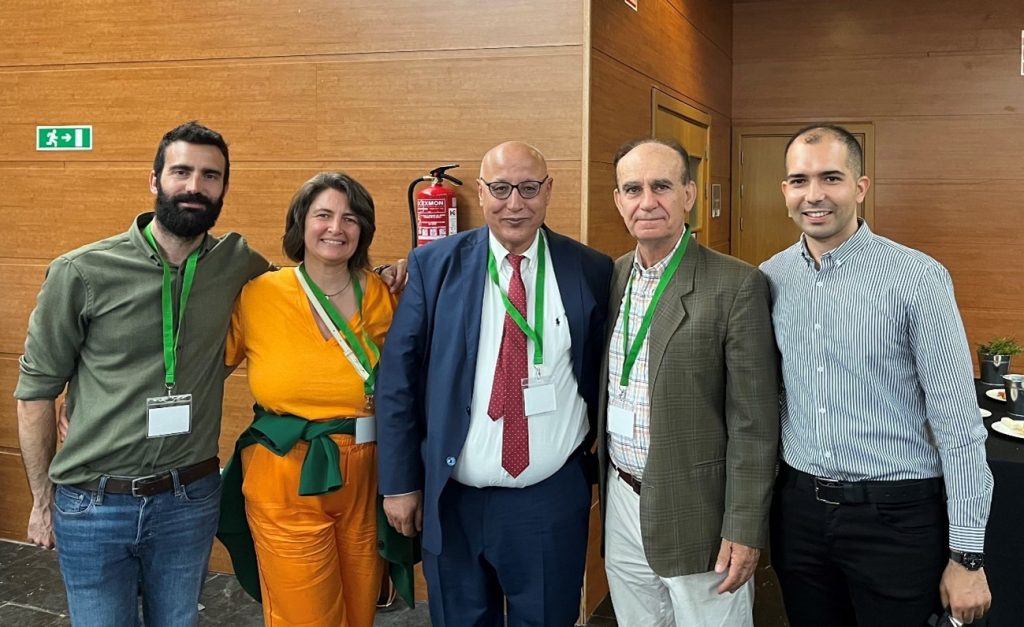
From left to right: Pablo Morello Parra, Catarina Bairrao Balula, Lhassane Sikaoui, Sebastián Sanchez and Akram Charfi.
During the technical visit, two approaches to orchard management were introduced by Vicente José Gallego Simón: a recently planted super intensive olive orchard, with a plantation framework of 1.5 m x 5 m, and an olive orchard managed under the OLIVARESvivos project, which aims to conserve biodiversity by recovering flora and fauna with specific olive orchard management techniques.
After the conference the conclusions of the Congress were presented and will be published soon.
